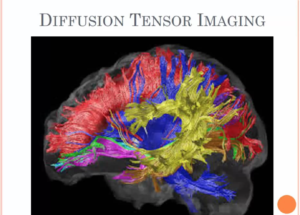Cognitive Functional Capacity Evaluation
(COG FCE)
What is a Cognitive Functional Capacity Evaluation?
How can a Cog FCE, conducted by a trained and experienced evaluator, assist in answering questions about physical, cognitive and behavioral factors that influence capacity and suitability for return to work?
How are critical elements of ecological validity considered in the Cog FCE?
How do you define and measure your client’s capacity for executive functioning?
How do you define and measure your client’s mental stamina and work endurance?
How do you ensure defensibility of your findings and opinion?
The Cog FCE workshop addresses these questions through a practical methodology that highlights a step-wise approach to functional evaluation, test selection, and clinical reasoning. Focusing on assessment of work-related executive function, it will assist the evaluator in formulating opinions, conclusions, and recommendations regarding feasibility for employment, overall work capacity, and return-to-work goals.
While traditional FCE protocols typically address physical capacity and potential limitations for work capacity and employability, they do not naturally accommodate for the broad range of cognitive and / or behavioral challenges faced by individuals with traumatic brain injury or mental health conditions. Following completion of this course, you will be able to structure your assessment to account for the physical, functional cognitive, psycho-emotional and behavioral issues faced by these diagnostic groups.
This course is designed for those evaluators who have completed the Matheson Functional Capacity Evaluation Program (or have undertaken comparable functional training) and have a sound understanding and practice applying the primary principles of safety, reliability, validity, practicality and utility and have a sound understanding regarding the evaluation of Effort and Reliability of Pain and Disability Reports.
The primary objective of this course is to develop and refine skills for planning, performing and documenting safe, reliable, valid and defensible FCE’s for individuals with acquired or traumatic brain injury or functional cognitive deficits stemming from other diagnoses (i.e. mental health).
Learning Outcomes
Section I – Foundations and Models of Practice
Students will have knowledge of the foundations of FCE Test Hierarchy, Models of Practice, Cog FCE Flowchart, and a Cog FCE Process Model to guide best practices and standardized methodology.
Section II – Cognitive Job Demands Analysis, Work Simulation, Tests & Measures
Students will have knowledge of how to complete Cognitive Job Demands Analysis (overview), evaluate using structured work simulation, and select and administer appropriate quantitative and qualitative standardized tests and measures.
Section III – Clinical Reasoning and Reporting
Students will consider application of the Cog FCE Process Model to case studies, review data analysis and report writing, and review factors to consider when offering Cog FCE in the clinical setting.
Who Should Attend
The course is specifically designed for occupational therapy practitioners. Physical therapists, Kinesiologists and other rehabilitation professionals will find the information applicable to clinical practice if they have a clinical background in neurology and / or have experience working with individuals with acquired or traumatic brain injury or mental health diagnoses resulting in cognitive and / or behavioral deficits.
The course is designed for experienced evaluators and clinicians. Prior experience performing FCEs or functional evaluation is a preferred. Prior completion of the Matheson FCE Program or comparable training is recommended. Experience in working with clients with traumatic brain injury, stroke and / or mental health diagnoses is recommended.
Click photo below to view video.
Educational Level
Mastery
Contact Hours
14 Hours (Lecture & Group Work)
The Matheson Difference; in order to enhance the learning experience, these learning tools will be used in the curriculum:
The resource will be available through the Matheson web site. Students may visit the site to review evaluation tests and techniques at their own pace.
Workshop Hours
Registration on the first day is from 8 – 8:30 a.m.
Subsequent day begins at 8 a.m. and ends at 5 p.m. with a one-hour lunch break at 12 noon and two 15 minute breaks around 10 a.m. and 3 p.m.
Course Approvals
AOTA CEU’s awarded based upon completion of the course in its entirety.
Approval by APTA is available through individual states.
Cancellation Policy
Matheson Education and Training Solutions LLC
166 South River Road Suite 240
Bedford, NH 03110
Phone: 1-800-443-7690 (Toll Free)
603-358-6525 (Int’l)
Fax: 603-358-0116
Email: info@roymathesonstagin.com
www.roymathesonstagin.com
Tania Percy, B.A., Reg. OT (BC), CWCE,
Certified CFC/LCP (Advanced)
Tania started consulting with Progressive Rehab in 1997. Her practice involves work capacity evaluations, cost of care assessments, and community-based rehabilitation. She also trains and mentors at Progressive Rehab for WorkSafeBC FCEs to ensure quality and consistency.
Tania is highly skilled in dealing with the difficulties that traumatic brain injury sequela can bring to families, particularly when a child or adolescent is involved (she previously worked in adolescent psychiatry and brain injury rehab). During a stint in Ontario, she coordinated legislated multidisciplinary assessments and provided training and mentoring to other team members.
Day One
Orientation
8:30-8:45
Introduction to course and overview
Review/Overview
8:45 – 10:00
FCE/ABI, Neuroanatomy
BREAK
10:00-10:15
Review
10:15-Noon
COG FCE Methodology/ Relevant Literature
LUNCH
Noon-1:00
Cognitive
1:15 – 3:00
Cognitive Job
Demands/Cognitive
Abilities Profiler
BREAK
2:45-3:00
Review/Discussion
3:00 – 5:00
Task Analysis of FCE Tests/ Video Analysis/Work Simulation
Day Two
Tests/Measures
8:00-9:45
Assessment Tests and Measures
BREAK
9:45 – 10:00
Tests/Measures Continued
10:15 -12:00
Assessment Tests and Measures/COG FCE Sample Report
LUNCH
12:00-1:00
Clinical Application
1:00 – 2:30
Large Group Case Study
BREAK
2:30 -3:45
Clinical Application
2:45 – 4:30
Small Group Case Studies
Overview/Review of Objectives/Discussion

